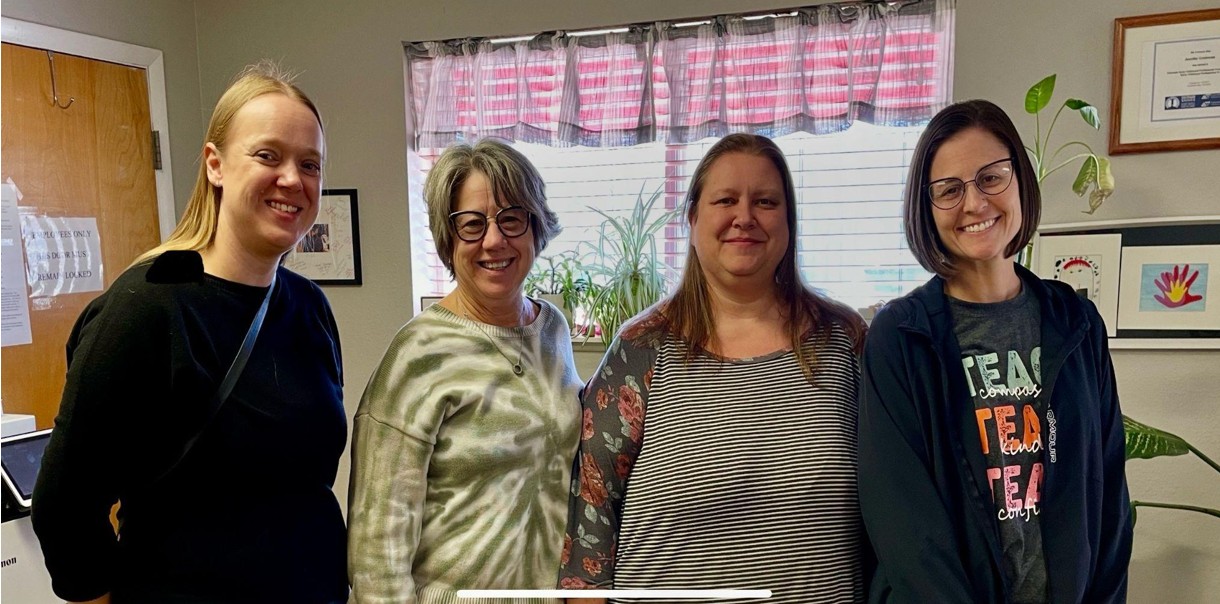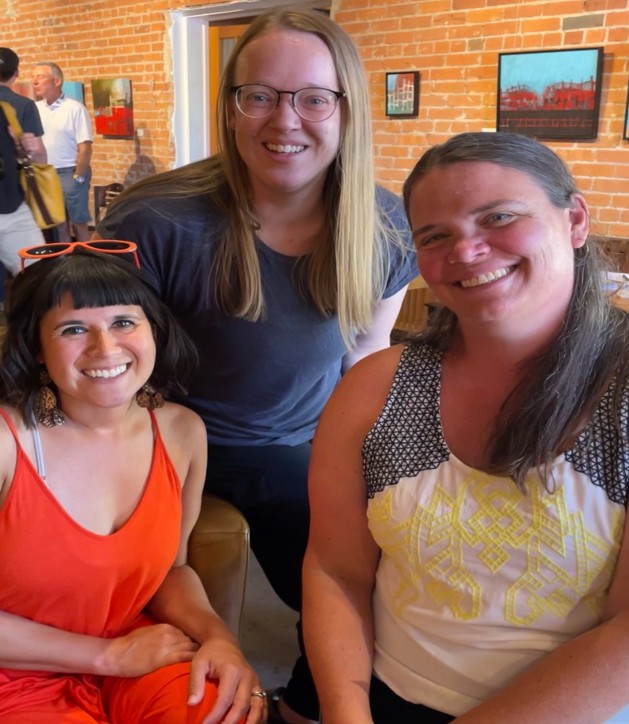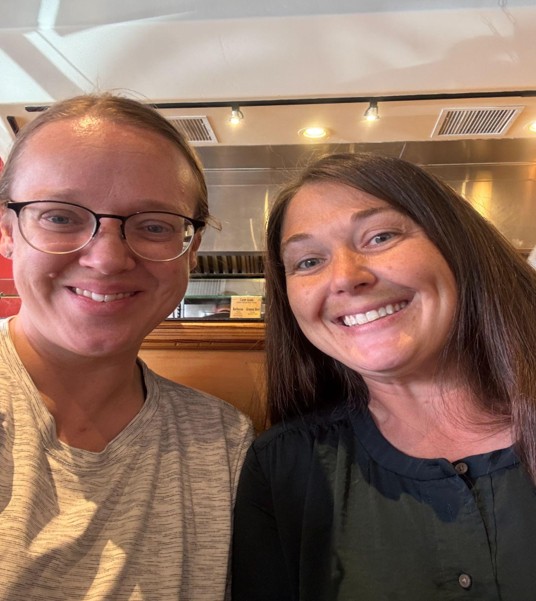Bridging the Distance: Supporting Early Childhood Coaches in Rural Colorado
Guest blog by: Rachael Byrd, PhD, Southwest Regional Coaching Specialist with the Colorado Department of Early Childhood
Contact: Rachael.Byrd@state.co.us
When I moved nine miles outside the small town of Villa Grove, in Colorado’s northern San Luis Valley, I quickly discovered the challenges and rewards of rural living. The scenery is stunning, and the quiet is calming. My dad likes to say, “You can hear yourself think here.” But the nearest urban center is over 130 miles away. That isolation shaped both my personal growth and my professional journey into early childhood systems and workforce development in rural Colorado.
Life in Rural Colorado
According to the U.S. Census Bureau, any area not classified as urban is considered rural or mostly rural. This typically means fewer people, greater distances, and limited access to services (Ratcliffe et al. 2016). As of 2022, three-quarters of Colorado’s counties have fewer than 50,000 residents. These rural or mostly rural areas face barriers to accessing healthcare, education, and child care.
Building Relationships Through Early Childhood Councils
My entry point into this work came through a local Early Childhood Council. The councils play a vital role in connecting providers, families, and community leaders around shared goals. My full-time role required balancing multiple responsibilities, including my favorite—serving as the Quality Improvement (QI) Navigator for Colorado Shines.
This role allowed me to build relationships with early childhood providers. I gained a deeper understanding of the systems that support them. It also introduced me to a hugely impactful role: the early childhood coach.

From left: Gwyn Grier, Rachael Byrd, Tina Purcell, and Corrine Jeagar, credentialed coaches with Bright Futures and Gunnison-Hinsdale early childhood councils.
The Shared Power of Coaching
Early childhood coaches work directly with educators and administrators to support professional growth. According to the Colorado Department of Early Childhood (CDEC), coaching is a collaborative process that uses observation, reflection, and data to support meaningful change.
The NAEYC Technical Assistance Glossary (2023) says coaching is related yet distinct from mentoring or consulting. It focuses on building trusted relationships while helping educators achieve specific goals. Coaching is a process grounded in adult learning and designed to improve the experiences of children and families.
I learned that Colorado has a long-standing commitment to coaching. Coaching approaches in our state have changed to meet the evolving needs of the workforce.
The Connecting with Rural Coaches Project
Living in a rural community sparked my interest in understanding how coaching reaches early childhood providers outside urban hubs. A review of research between 2009 and 2020 revealed that only 5% of early childhood coaching studies included rural providers. However, nearly 15% of families in those same areas reported needing care. Family Child Care providers and those serving infants and toddlers were particularly underrepresented (Lang et al., 2024).

From left: Rachael Byrd, Cheryl Gould, Jennifer Contreras, and Kim Kneipper, credentialed coaches from Rocky Mountain Children’s Discovery Center in Cañon City.
This research gap led to the Connecting with Rural Coaches Project. This project aims to better understand the experiences of early childhood coaches in Colorado’s rural communities. Through listening sessions, in-person meetups, and newsletters, the project has begun identifying both strengths and challenges for rural coaching.
What We’re Learning
Several key themes have emerged from the project:
- No two rural communities are the same. Some areas have only one coach serving multiple counties. Others have several coaches working under different models or frameworks.
- Geography limits time. Coaches often travel long distances to visit providers. This leaves less time for coaching.
- Hiring trends are shifting. Some centers are hiring on-site coaches to increase accessibility.
- The pressure is real. Coaches express feeling like they must “know it all.” They are the go-to resource for everything from curriculum to licensing.
Despite these challenges, we are seeing growth. Thanks to efforts from the CDEC Regional Coaching Network and targeted training opportunities, more credentialed coaches are working in rural areas than ever before.
From 2024 to 2025:
- Credentialed coaches in rural counties increased by 21%.
- 73% of Colorado’s rural counties now have at least one locally based credentialed coach. This is up from 69% the year prior.

From left: Becca Trefry, Rachael Byrd, and Stephanie Milner, credentialed coaches with the La Plata County Early Childhood Council.
Moving Forward: Recommendations
While progress is being made, there’s still work to do. Based on what we’ve heard from rural coaches, the following recommendations can strengthen coaching in rural communities:
- Leverage local strengths. Tailor strategies to the unique assets and values of each community.
- Expand substitute pools. Teachers need time and space to participate in coaching and professional development.
- Improve communication channels. Ensure all programs and coaches receive timely, consistent updates and resources.
- Develop relationship-based tools. Offer guidance and materials to strengthen connections across isolated regions.
- Offer individualized support. Avoid one-size-fits-all solutions by providing flexible training and technical assistance.
Coaching in Action: A Local Example
During a recent trip to Durango, I met with Tiffany Chacon. Tiffany is an alumna of our Relationship-Based Professional Development (RBPD) training. Tiffany is the current Early Childhood Project Manager at the Good Food Collective for the La Plata Food Equity Coalition.
Tiffany has applied her coaching skills in a unique way. She is focusing on expanding access to services and training for Spanish-speaking families and providers. She works in communities like Durango, Bayfield, and Ignacio.
Tiffany combines coaching principles with a systems approach. She works with community partners to improve child care as a key piece of achieving food equity.

From left: Rachael Byrd and Tiffany Chacon, Early Childhood Project Manager with the Good Food Collective in Durango.
Final Thoughts
My experience living and working in rural Colorado has shown me that early childhood coaching is not just a support tool. Coaching is a lifeline for educators navigating challenges with limited resources. With continued investment, flexibility, and local partnerships, we can ensure that rural coaches have the tools they need to thrive.
Interested in learning more about early childhood coaching in Colorado? Visit the Colorado Department of Early Childhood’s website or subscribe to the Coaching Chronicle Newsletter for updates from the ECE coaching profession.
You can also check out Pathways to Success: Colorado’s Comprehensive Early Childhood Workforce Plan. The primer on coaching starts on page 58.
Additional Resources:
Lang, Sarah N., Erin Tebben, Rosalie Odean, Michael B. Wells, He Huang. 2024. Inequities in Coaching Interventions: A Systematic Review of Who Receives and Provides Coaching Within Early Care and Education. Child and Youth Forum. 53:141-171.
Paschall, Katherine, Tamara Halle, and Kelly Maxwell. Early Care and Education in Rural Communities. 2020. OPRE Research Brief #2020-62. Child Trends.
Ratcliffe, Michael, Charlynn Burd, Kelly Holder, and Alison Fields, “Defining Rural at the U.S. Census Bureau,” ACSGEO-1, U.S. Census Bureau, Washington, DC, 2016.
keyTakeaways
Early childhood coaches work directly with educators and administrators to support professional growth. According to the Colorado Department of Early Childhood (CDEC), coaching is a collaborative process that uses observation, reflection, and data to support meaningful change.
The Connecting with Rural Coaches Project aims to better understand the experiences of early childhood coaches in Colorado’s rural communities. Through listening sessions, in-person meetups, and newsletters, the project has begun identifying both strengths and challenges for rural coaching.
Based on what we’ve heard from rural coaches, the following recommendations can strengthen coaching in rural communities:
- Leverage local strengths.
- Expand substitute pools.
- Improve communication channels.
- Develop relationship-based tools.
- Offer individualized support.





